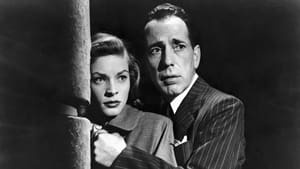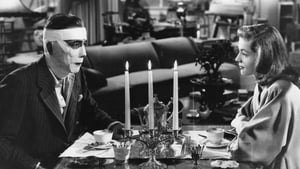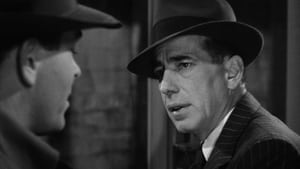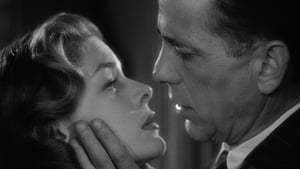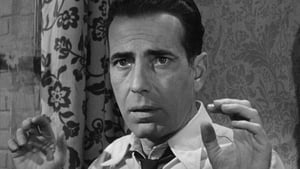Contact: [email protected]
Video Sources 0 Views
- Watch trailer
- Dark Passage

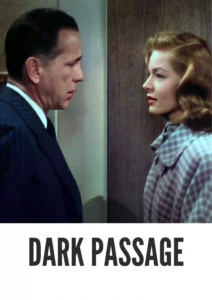
Synopsis
Table of Contents
ToggleReview: Dark Passage (1947) – A Captivating Noir Mystery

Introduction
Dark Passage, released in 1947, is a gripping film noir directed by Delmer Daves that takes audiences on a thrilling journey through the shadows of San Francisco. Renowned for its innovative use of subjective camera techniques and its tense atmosphere, this classic mystery continues to captivate viewers with its twists and turns. In this review, we’ll delve into the mysterious world of Dark Passage and explore its enduring appeal.
Check The Full Colorized Movies List
Check Our Colorized Movies Trailer Channel
Understanding Dark Passage (1947): Director, Cast, and Genre
Directed by Delmer Daves, Dark Passage features a stellar cast led by Humphrey Bogart and Lauren Bacall. The film belongs to the film noir genre, known for its moody atmosphere, morally ambiguous characters, and intricate plotlines.
Exploring the World of Dark Passage (1947): Plot and Characters
Dark Passage follows the story of Vincent Parry, a man wrongfully convicted of murder, who escapes from prison in a desperate bid to clear his name. With the help of a sympathetic stranger named Irene Jansen, Vincent goes on the run as he seeks to uncover the truth behind the crime he was framed for. As the suspense builds and the stakes escalate, Vincent must navigate a web of deceit and danger in his quest for justice.
The Art of Film Colorization
While Dark Passage was originally filmed in black and white, its early colorized version adds a new layer of depth to its atmospheric visuals. The colorization process enhances the film’s moody atmosphere and captures the nuances of its shadowy characters with striking clarity.
Early Colored Films: A Brief History
The history of early colored films is marked by innovation and experimentation as filmmakers sought to enhance the visual appeal of their movies. From hand-tinted frames to pioneering technicolor processes, the evolution of colorization techniques transformed the cinematic landscape, offering audiences a new way to experience the darkness and intensity of film noir.
Dark Passage (1947) and Its Early Colored Version
The decision to release Dark Passage in a colorized format was made with the intention of immersing audiences in the atmospheric beauty of its San Francisco setting and enhancing the film’s visual impact. While some purists may prefer the original black and white version, the early colorized edition of Dark Passage adds a new layer of depth to its moody cinematography and captures the psychological depth of its characters with breathtaking clarity.
The Debate Over Film Colorization
The debate over film colorization continues to divide audiences and industry professionals alike. While some argue that colorization breathes new life into classic films and makes them more accessible to modern audiences, others maintain that it compromises the artistic integrity of the original work. As technology advances and filmmaking techniques evolve, the debate over colorization remains a topic of ongoing discussion within the film community.
Examining Dark Passage (1947) as an Early Colored Film
Viewing Dark Passage in its early colorized iteration offers audiences a fresh perspective on its moody atmosphere and psychologically rich characters. The colorization process enhances the film’s atmospheric cinematography and captures the tension and suspense of its narrative with stunning clarity. As viewers are drawn into Vincent’s desperate quest for redemption, they are treated to a visual feast that immerses them in the shadows and secrets of film noir.
Influence and Legacy: Dark Passage (1947)’s Impact on Cinema
Dark Passage is widely regarded as a classic of the film noir genre that continues to captivate audiences with its suspenseful storyline and atmospheric visuals. Its innovative use of subjective camera techniques and its psychologically rich characters have left an indelible mark on cinema, influencing filmmakers and inspiring new generations of cinephiles.
Director’s Cinematic Legacy: Beyond Dark Passage (1947)
Delmer Daves’ directorial legacy extends far beyond Dark Passage, encompassing a diverse body of work that includes acclaimed films such as 3:10 to Yuma and Jubal. As one of the pioneering filmmakers of classic Hollywood cinema, Daves was known for his ability to craft compelling narratives that explored the complexities of the human condition with depth and nuance. Dark Passage stands as a testament to his talent and creativity, solidifying his reputation as one of the great auteurs of his time.
Themes Explored in Dark Passage (1947)
At its core, Dark Passage explores themes of injustice, redemption, and the search for truth in a world filled with deception and betrayal. Through its moody atmosphere and psychologically rich characters, the film offers a nuanced portrayal of the human condition, challenging viewers to confront their own beliefs about right and wrong as they navigate the treacherous streets of San Francisco.
Reception and Controversy Surrounding Dark Passage (1947)
Upon its release, Dark Passage received widespread critical acclaim for its suspenseful storyline, innovative camerawork, and powerhouse performances. While the decision to release the film in a colorized format sparked debate among purists, its enduring popularity has cemented its status as a timeless classic of the film noir genre.
Where to Watch Dark Passage (1947) Online
For those eager to experience Dark Passage for themselves, the film is readily available on popular streaming platforms such as Amazon Prime Video, Google Play Movies, and iTunes. Whether viewed in its original black and white format or its early colorized iteration, Dark Passage offers a cinematic experience that is both suspenseful and visually stunning.
FAQs About Dark Passage (1947)
1. Is Dark Passage based on a true story?
No, Dark Passage is a fictional film that explores the dark and mysterious world of film noir through the eyes of its morally complex characters. While the film’s storyline may draw inspiration from real-life events, its characters and plot are works of fiction.
2. Who starred in Dark Passage?
Dark Passage stars Humphrey Bogart in the role of Vincent Parry, a man wrongfully convicted of murder who goes on the run to clear his name. He is supported by Lauren Bacall, who delivers a memorable performance as Irene Jansen, the sympathetic stranger who helps him in his quest for justice.
3. What is the central message of Dark Passage?
At its core, Dark Passage explores themes of injustice, redemption, and the search for truth in a world filled with deception and betrayal. Through its moody atmosphere and psychologically rich characters, the film offers a nuanced portrayal of the human condition, challenging viewers to confront their own beliefs about right and wrong as they navigate the treacherous streets of San Francisco.
4. Why was Dark Passage released in a colorized format?
The decision to release Dark Passage in a colorized format was made with the intention of immersing audiences in the atmospheric beauty of its San Francisco setting and enhancing the film’s visual impact. While some purists may prefer the original black and white version, the early colorized edition of Dark Passage adds a new layer of depth to its moody cinematography and captures the psychological depth of its characters with breathtaking clarity.
5. What is the legacy of Dark Passage?
Dark Passage is widely regarded as a classic of the film noir genre that continues to captivate audiences with its suspenseful storyline and atmospheric visuals. Its innovative use of subjective camera techniques and its psychologically rich characters have left an indelible mark on cinema, influencing filmmakers and inspiring new generations of cinephiles.
6. Are there any sequels or remakes of Dark Passage?
No, there have been no official sequels or remakes of Dark Passage. However, the film’s enduring popularity has inspired countless reinterpretations and homages in various media. Nonetheless, none have captured the suspenseful atmosphere and psychological depth of the original 1947 classic.
7. Where can I watch Dark Passage online?
For those eager to experience Dark Passage for themselves, the film is readily available on popular streaming platforms such as Amazon Prime Video, Google Play Movies, and iTunes. Whether viewed in its original black and white format or its early colorized iteration, Dark Passage offers a cinematic experience that is both suspenseful and visually stunning.
Conclusion
In conclusion, Dark Passage (1947) stands as a gripping and atmospheric masterpiece of the film noir genre that continues to captivate audiences with its suspenseful storyline, innovative camerawork, and psychologically rich characters. Whether viewed in its original black and white format or its early colorized iteration, Delmer Daves’ insightful direction and the powerhouse performances of Humphrey Bogart and Lauren Bacall offer a cinematic experience that is both thrilling and visually stunning. As viewers are drawn into the shadowy world of Vincent Parry, they are treated to a visceral journey that challenges their beliefs about justice, redemption, and the search for truth. Dark Passage remains a timeless classic that continues to enthrall and inspire audiences around the world.
